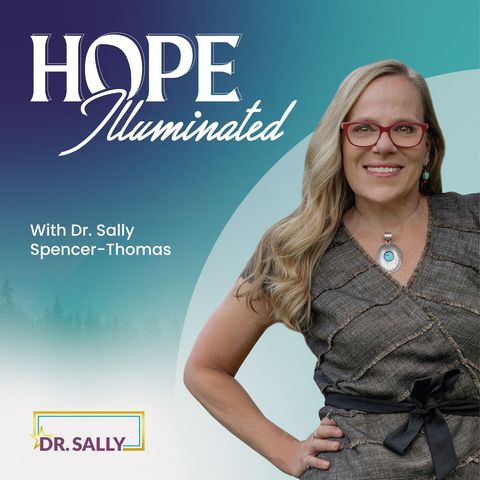Psychosocial Hazards on the Job -- Listening to the Voices of Suicidal Workers: Interview with Professor Sarah Waters | Episode 70

Sign up for free
Listen to this episode and many more. Enjoy the best podcasts on Spreaker!
Download and listen anywhere
Download your favorite episodes and enjoy them, wherever you are! Sign up or log in now to access offline listening.
Description
Can Employers be Held Accountable for Driving Workers to Suicidal Despair? Waters, S. (2020). Suicide Voices: Labour Trauma in France. Liverpool University Press. https://www.liverpooluniversitypress.co.uk/books/id/53177/ Waters, S. (2020). Suicide Voices: Labour...
show moreWaters, S. (2020). Suicide Voices: Labour Trauma in France. Liverpool University Press. https://www.liverpooluniversitypress.co.uk/books/id/53177/
Waters, S. (2020). Suicide Voices: Labour Trauma in France. Liverpool University Press. https://www.liverpooluniversitypress.co.uk/books/id/53177/
Internationally, over the last few years, there has been increased interest in work-related suicide deaths. No longer are suicides considered the sole result of an individual’s mental health condition. Currently, researchers have linked suicide death and suicidal despair to a toxic working conditions and job strain, including the following psychosocial hazards:
Job Design Challenges
Low job control — lack of decision-making power and limited ability to try new things
Excessive job demands and constant pressure/overtime
Effort-reward imbalance — related to perceived insufficient financial compensation, respect or status
Job insecurity — perceived threat of job loss and anxiety about that threat
Lack of job autonomy
Lack of job variety
Toxic work-design elements (e.g., exposure to environmental aspects that cause pain or illness)
Toxic Interpersonal Relationships
Bullying, harassment and hazing at work
Prejudice and discrimination at work
Lack of supervisor of collegial support — poor working relationships
Family Disruption
Work-family conflict (i.e., work demands make family responsibilities more difficult)
Family-work conflict (i.e., family demands make work role challenging)
Lack of Purpose or Connection to Mission
Heightened job dissatisfaction and the feeling of being “trapped”
Work is not meaningful or rewarding
Other Work-Related Health Impacts
Work-related trauma (e.g., personal or seeing and accident or injury)
Work-related sleep disruption (e.g., due to unexpected overtime, extended or changing shifts)
Work culture of poor self-care and destructive coping (e.g., alcohol and drug use)
In this podcast, I have the honor of interviewing Professor Sarah Waters from the UK. She is a leading global researcher on the topic of work-related suicides, and a driver of legislation to improve working conditions and help make suicide prevention a health and safety priority at work. Here we discuss a number of large employers who have been held accountable for the suicide deaths of their employees in criminal court.
About Professor Sarah Waters
Sarah Waters headshot B&W.png
Sarah Waters is Professor of French Studies at the University of Leeds, UK. Her research focuses on work-related suicide in France and across the international stage and seeks to understand the complex connections that link contemporary working conditions with the extreme and subjective act of suicide. Her book, Suicide Voices. Labour Trauma in France was published by Liverpool University Press in September 2020.
In her book, Sarah examines testimonial material linked to 66 suicide cases across three large French corporations. She examines ‘suicide voices’ considering how workers themselves describe the circumstances that led them to such desperate extremes in the letters, emails and recordings they leave behind. Why at the present historical juncture do conditions of work push some individuals to take their own lives? What can suicide letters tell us about the contemporary economic order and its impact on flesh and blood bodies? How do suicidal individuals describe the causes and motivations of their act?
Alongside her research, Sarah actively campaigns to improve workplace legislation in order to recognise and monitor work-related suicides. She is part of the trade union Hazards campaign in the UK that lobbies the Health and Safety Executive
She lives in Leeds and is a mother of two teenage boys.
Information
| Author | MHNRN, LLC |
| Organization | MHNRN |
| Website | - |
| Tags |
Copyright 2024 - Spreaker Inc. an iHeartMedia Company
